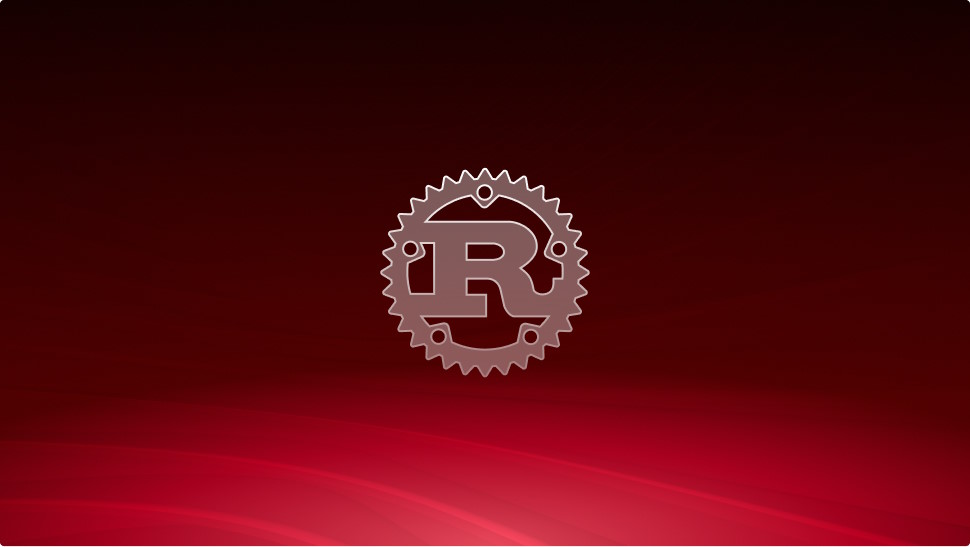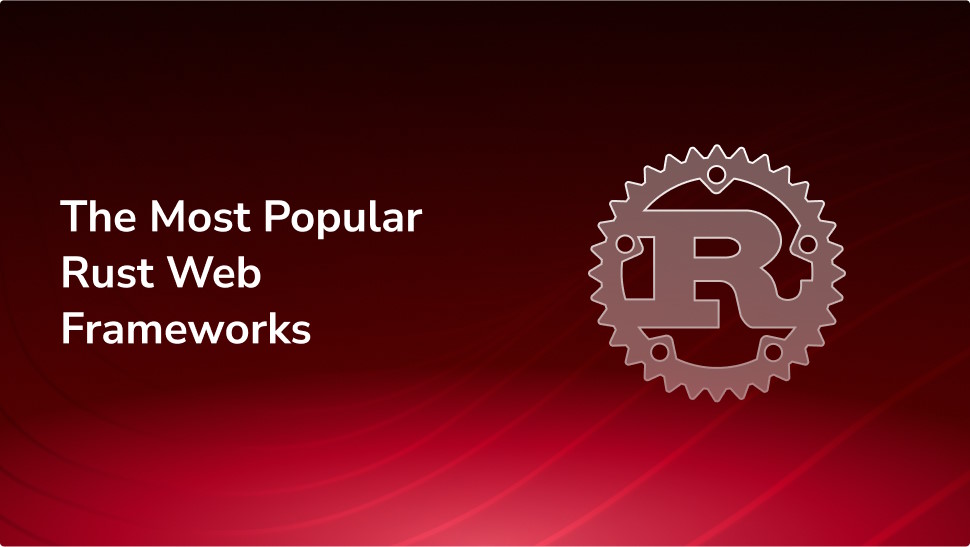What is Rust Web Development?

Rust web development uses the Rust programming language, and associated web frameworks, to create fast, secure, and reliable websites and web applications. Rust is a statically typed, open-source programming language that emphasizes performance and memory safety without compromising programmer productivity. It has a similar syntax to C++ in the sense that it has no garbage collector, uses smart pointers, and has a similar compile time.
In this article, you will learn what Rust web development is, the type of web applications that are built with it, and the most popular front and back-end web frameworks for Rust.
What Exactly is Rust Web Development?

The Rust programming language has become popular due to its high performance, ability to process large amounts of data, support for concurring programming, and fast compilation times. This makes Rust ideal for developing efficient and reliable web applications while still maintaining flexibility in low-level programming.
Low-level programming is when you use a programming language that lets you handle memory management, and it is close to the hardware you are running your code on. Think of low-level programming as establishing the foundation for a building you are about to construct. By establishing the foundation first (low-level programming), you will know where to build on top of that (high-level programming).
Rust also supports a wide range of web frameworks – software that supports the development of static and dynamic websites, web services, and web applications – such as Rocket, Serde, Diesel, Actix, Warp, Axum, Hyper, and Tide.
A Rust web framework can assist with front-end and backend web app development by ensuring type safety, interoperability with other programming languages, support for multi-threading, and optimization for specific web browsers, among many other benefits.
Types of Web Applications Built in Rust Web Development

Here is a quick breakdown of the most common web applications built using Rust web development tools.
Static and Dynamic Websites
Rust can be used to build all kinds of static and dynamic websites, including websites for SMEs, portfolios, social media platforms, news publications, non-profit organizations, personal and commercial blogs, eCommerce, and forums.
Since 2016 Meta (formerly Facebook) has been using Rust to develop projects like the Mononoke source control management tool and Diem (formerly Libra) blockchain, while the password manager service 1Password has been using Rust to write their shared backend library and perform cross-platform deployment on macOS, iOS, Windows, Android, Linux, their browser extension, and their web application.
Web Applications
Rust is an excellent programming language for building static and dynamic web applications. This is thanks to the many front-end and back-end web frameworks that are compatible with Rust, which allows for low-level programming in modern web browsers and interoperability with other web APIs built in JavaScript and other web technologies.
Amazon Web Services (AWS) has been an early adopter of Rust for web application development, using the language to power virtual machines like Firecracker and Cracker for secure, serverless computing.
Content Management Systems
A Content Management System (CMS) is a tool that helps organize static and dynamic web content in a user-friendly manner, as is the case for news portals, personal and commercial blogging platforms, as well as marketing and sales platforms.
Many Rust web frameworks assist with CMS development by providing intuitive admin panels and API consumables from any HTTP client. They also give programmers the freedom to structure their data in a manner that best suffices client needs by clearly defining models and creating rich, user-friendly layouts and experiences.
Portal Web Apps
A portal web app is a website that contains centralized information and documentation that is typically only accessible to permitted users, such as student or faculty portals and government portals.
Portal apps make it easy for users to find and access resources and information that is relevant to their role, such as students gaining access to reading material to prepare for an upcoming test or review the materials of a previous lecture.
With a strong emphasis on memory safety and performance, the Rust programming language is ideal for building portal web apps, as it can help fill potential security vulnerabilities and ensure the information and documentation is thoroughly self-contained.
The Most Popular Rust Web Frameworks

The Rust web programming language is compatible with a wide range of popular web frameworks.
These web frameworks help streamline the web development process. They provide access to tools and libraries that assist in the creation of databases, sessions, templating, and more. Some frameworks also specialize in aspects of front-end or backend development or a combination of both. One such example is Stdweb, a front-end library that lets Rust programmers communicate with JavaScript web APIs.
Here is a brief rundown of the best Rust web framework types for your project:
Front-End Frameworks
Dioxus
Dioxus is a GUI library that functions like React by having a virtual Document Object Model (DOM). The virtual DOM helps speed up the re-rendering process, which occurs when app data changes and must be updated, by creating a lighter and, therefore, faster-performing replica of an actual DOM. Dioxus also supports cross-platform application development for web, mobile, and desktop environments.
Sauron
Sauron is a microframework for creating fast, secure, and seamless front-end applications, as well as assisting with some back-end application development. It is designed to help programmers create front-end and back-end applications with fewer lines of code, which it achieves by letting written code be shared on both the client and server sides.
Percy
Percy is a web framework that is designed to build single-page applications and manage user interfaces. It also helps optimize performance and stability for specific web browsers and devices, such as managing the screen size difference between mobile devices and desktop workstations. Percy can also automate the testing of visual UI changes to help deliver timely updates without sacrificing quality.
Yew
Yew is a component-based web framework designed to make it easy to design, test, and deploy user-friendly and interactive UIs. It is also based on the React and Elm frameworks, making it accessible to programmers with similar relevant experience. Yew can also assist with server-side rendering for SEO purposes.
Backend Web Frameworks
Rocket
Rocket is a web framework that helps Rust programmers write secure and fast web applications without compromising security, usability, and flexibility. By prioritizing type safety to keep type errors to a minimum and removing the need for boilerplate code, Rocket helps boost programmer productivity and improve overall code quality. It also supports JSON out of the box.
Actix
Actix is a fast Rust framework that prioritizes speed, type safety, and extendibility. It allows programmers to easily create their own libraries using Actix applications, and it comes with a range of features out of the box, such as HTTP/2 and logging.
Axum
The Axum framework complements Rust’s dedication to speed, safety, and flexibility by providing high-level APIs for building web applications. This makes it particularly suitable for high-traffic websites and web applications. Axum can also integrate with other Rust libraries and tools, giving programmers the freedom to expand the functionality of their web applications.
Warp
Warp is a Rust-based, fully native web framework that is backward compatible with bash, fish, and zsh. It helps streamline the coding process with modern features like completion menus, selections, and cursor positioning. Programmers can also use GPT-3 AI-powered search to convert natural language into shell commands.
Tips for Outsourcing Rust Development

As one of the most popular programming languages in the world, more and more programmers are specializing in Rust development. This makes it easier for businesses and organizations to outsource their Rust development to dedicated software teams, as there are plenty of specialists to choose from.
Here are some useful tips to successfully outsource your Rust development needs:
Programming Language Experience
Make sure that your software development team has extensive experience with Rust.
Rust is considered a difficult programming language to learn, and most people who learn it have previous experience with similar programming languages like C and C++. Therefore, it is unlikely that newer, younger programmers will be familiar with Rust. There are exceptions to the rule if a programmer is particularly talented.
Transparency
Your software development team should be transparent with you through each step of the cycle, from discovery to development to deployment.
You should be able to understand what they have to say to you, both in written and verbal communication. And they should be relatively quick to respond to messages and voice call requests so as to grant you the assurance that your project is on the right track.
Past Successful Projects
Ask to see examples of the software development team’s past projects using Rust. They should have a portfolio or case studies section on their website.
Alternatively, they may share examples with you during your initial meeting. Make sure their skills and experience match your project specifications. Rust is frequently used for building high-scale, complex applications, so past experience with projects of that scale is essential.
Is Rust Web Development Right for You?

If you want to build a fast, scalable, and secure web, desktop, or mobile application, then Rust could be the perfect solution.
If your business is experiencing shortcomings with C++, such as type safety and performance issues, replacing those components with Rust could help. Companies like Microsoft are investing heavily in Rust, rewriting core Azure and Windows code with Rust equivalents for improved code safety and performance boosts.
Rust can also be used to make all kinds of websites and web applications, including portfolios, eCommerce, articles and news publications, personal and commercial blogs, social media platforms, and cloud storage. In the case of cloud storage, in 2020, Dropbox launched a new sync engine called Nucleus which was written in Rust. Choosing to use Rust language and its frameworks for developing web applications, web developers gain an advantage of support thanks to a large Rust community.
Interested in achieving similar results for your business or organization?
